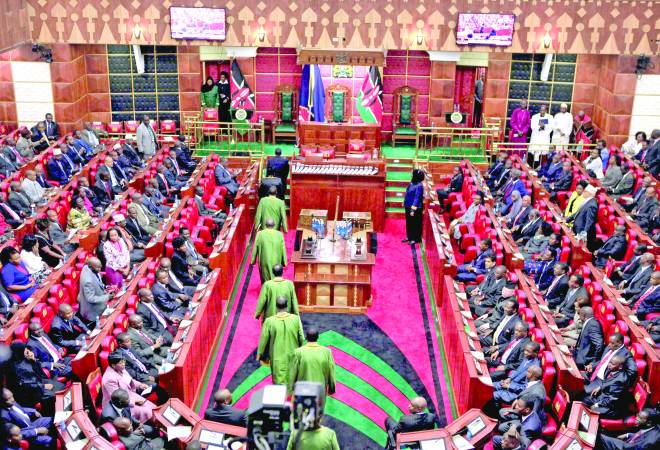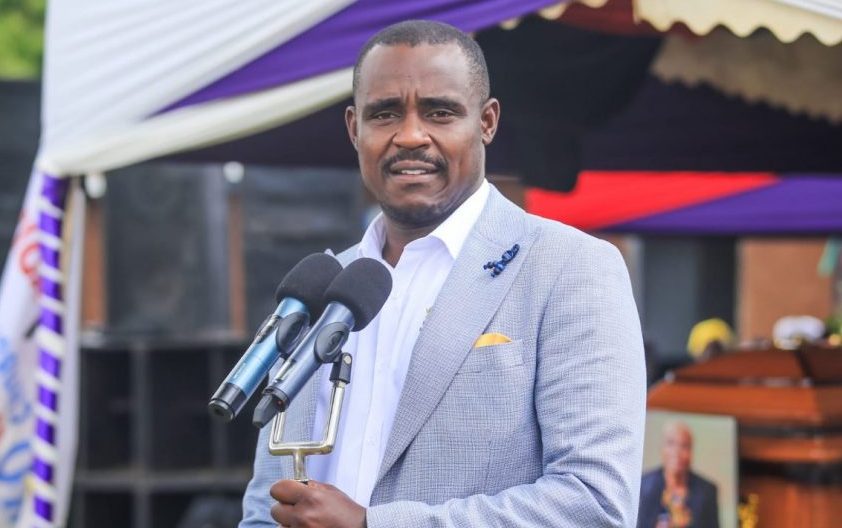Parliament rejects bid to raise debt cap

by Jeremiah Kiplang’at
The Parliamentary Budget Committee has rejected the government plan to raise the debt ceiling to Sh12 trillion, dealing a major blow to the administration’s intention to borrow more before the August General-Election.
The Jubilee government has been looking to increase the debt ceiling from Sh9 trillion for fear that it would not be able to borrow money to meet its financial obligations.
National Assembly’s Budget and Appropriations Committee chaired by Kieni Member of Parliament Kanini Kega argues that the request by the National Treasury to be allowed to cover a deficit of Sh846 billion in the 2022/23 financial year through borrowing was not acceptable.
Treasury had made the request in the Budget Policy Statement presented in the House last December and which was forwarded to the committee for examination before it is formally tabled for debate by MPs.
“The committee is concerned that the BPS had proposed an overall deficit of 846 billion which, if approved, has a potential to breach the approved debt ceiling of Sh9 trillion,” the committee said in its report.
It is forecasted that by the end of June 2022 the stock of debt will amount to Sh8.6 trillion, which means the only amount the government can borrow in the next financial year without an amendment of the ceiling will be Sh400 billion.
The committee, therefore, recommends that the overall deficit be limited to Sh400 billion.
Parliament has been under pressure from the National Treasury to adjust the ceiling which was last imposed in 2019 through a vote in the House seeking extra funds to complete President Uhuru Kenyatta’s legacy projects before his term ends in August.
National debt has become a hot-potato issue in the campaigns ahead of the August 9 General Election as key figures engage in exchanges over how the country should proceed with the ballooning debt.
Increased appetite for loans
Amani National Congress leader Musalia Mudavadi, who recently teamed up with Deputy President William Ruto in the Kenya Kwanza Alliance, has been the leading voice in reprimanding the government for its increased appetite for loans.
“Kenya’s public debt is galloping towards the Sh9 trillion ceiling against a GDP of Sh11 trillion. This means that for every Sh100 of revenue collected, Sh70 goes towards paying debt. That leaves a paltry Sh30 for public salaries, health services, education, security, infrastructure and all those services that fall under devolved governments,” Mudavadi said when he launched his presidential bid last month.
The country’s total debt stood at Sh7.99 trillion as at September last year, the Central Bank of Kenya’s (CBK) weekly bulletin indicates.
CBK governor Patrick Njoroge said Kenya must manage its ballooning debt before it crushes the economy. Public and publicly guaranteed external debt stands at Sh4.1 trillion, with domestic debt totalling Sh3.9 trillion. Commercial loans account for about 30 per cent of external loans while bilateral debts take up 30 per cent.
“We need to be clear in the direction debt is taking us. The time is now. We don’t need to wait until it is crushing us,” he said.
The National Treasury has been issuing bonds ranging between Sh40 billion and Sh60 billion monthly for infrastructure and budgetary support, highlighting the depth of appetite for loans.
The International Monetary Fund (IMF) considers Kenya’s portfolio as sustainable, but it is at high risk of debt distress while Treasury remains confident the country’s debt is sustainable.












